The Profound Silence at the Top of the World
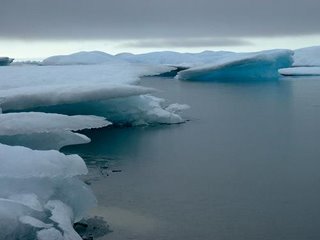 For some reason, I have been thinking about the far, far north lately. I never really talked about it with anyone, but that place fascinates me, and I just want to share my thoughts a bit.
For some reason, I have been thinking about the far, far north lately. I never really talked about it with anyone, but that place fascinates me, and I just want to share my thoughts a bit.
It started about 20 years ago, when I was working at American Express in Toronto. I love maps. I used to have a map of Canada pinned to the wall in my cubicle. But since the cube walls don’t go all the way up, the map was mounted fairly low. Most of the populated parts of Canada are all along the southernmost edge, where it’s warmer and closer to the US border. But, whenever I was talking on the phone and my eyes wandered to the map, the part of the map at eye level was the top – the northernmost parts of Canada. Yukon Territories, and Northwest Territories (which now has been split into Northwest Territories and Nunavut Territories).
As I looked at it so many times, I started to memorize the islands and places, and I would look at a group of Islands the size of western Europe and see one tiny little village all by itself. And as I looked, I tried to imagine what it must be like living there.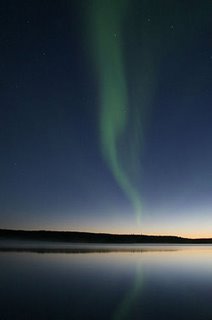 So remote. So isolated. Is it just a cluster of igloos populated by a handful of Inuit? Or is it an actual little town with proper buildings? Are there stores there? Is there a hotel? Are there any restaurants? Do they have cars and trucks, or is it all snowmobiles? Do ships visit there? What do the people do there? How do they support themselves? How many people are living there? Are they Inuit or white people? Do they fish, or work in a mine? Or are there geologists and scientists measuring the various natural aspects of the place? What does it look like? What does it smell like? Are there trees, or is it tundra?
So remote. So isolated. Is it just a cluster of igloos populated by a handful of Inuit? Or is it an actual little town with proper buildings? Are there stores there? Is there a hotel? Are there any restaurants? Do they have cars and trucks, or is it all snowmobiles? Do ships visit there? What do the people do there? How do they support themselves? How many people are living there? Are they Inuit or white people? Do they fish, or work in a mine? Or are there geologists and scientists measuring the various natural aspects of the place? What does it look like? What does it smell like? Are there trees, or is it tundra? 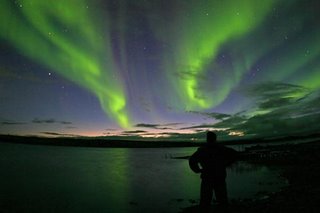
Growing up in Toronto, there is a sense that all the developed civilization is in the south and the further north you go, the further you are from civilization. At least that's how it was back in the years before the internet came. 50 miles north of Toronto, you would find small towns that were perhaps behind the big city by a few years, in terms of clothing styles, sayings, music they listen to, knowledge of recent events, etc.. 100 miles north, you would meet people who were generally 10 or 20 years behind in some ways, but still modern in others.
As a musician, when I was young, I used to travel to some small towns in northern Ontario such as Timmins, and Hearst, and Thunder Bay, etc. These are many hundreds of miles north of Toronto, and it was like a whole different world up there. You weren't quite at the edge of civilization, but you could see it from there. In fact, I distinctly remember driving west along the highway into Hearst and checking the map to find that there were no more roads north of there. It was the end. That was as far as civilization and development had reached so far. What a strange feeling for a guy who had grown up in a big city, surrounded by a world of established developed infrastructure and society: to literally be at the edge of connected civilization. As I drove along, I would look at the tall, dense, untouched forest on the right and think that it's possible no one has been in those very trees right there. Ever.
So the extreme north carries a certain mysterious quality to it in my mind. An undiscovered, unexplored, distant place, very sparsely populated with tiny, isolated settlements that you need a bush plane to reach. I always wondered why people would live in a place that was unreachable by road, disconnected to the rest of civilization.
Now, it's a bit different, of course. With the internet reaching almost everywhere by satellite, everyone has the opportunity to be up to date on all things regardless of how far away they are from the nearest big city. The internet has been the great equalizer in the world in many respects.
But still, there is the simple volume of civilization that slows down to a trickle any more than a few hundred miles north of the Border with the US.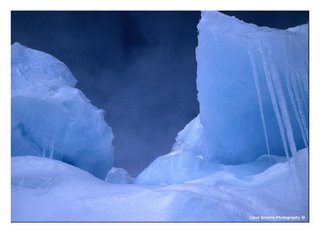
Here in the U.S. there seems to be a town every couple of miles. And roads seem to lead in all directions. The north is no more mysterious than the south. It seems rare to drive even 10 miles without seeing some sort of town, or settlement, or buildings or SOMETHING. But Canada has 226,000 square miles more land than the US,(an area larger than California by 40%, and almost as large as Texas) and yet only contains about 30 million people compared to the 300 million people in the US. So in Canada it is quite common to drive 100 miles and see virtually no sign of people or civilization. Much of Canada is still unspoiled and undeveloped, and since most of the population is very concentrated along the US border, that means that the north, and far north is extremely sparse, unspoiled, and ideal for visiting the earth as it really is away from the effects of human civilization. So when there IS a settlement, my curiosity is piqued. It's almost like a tiny outpost on another planet. Some of these places, (like Alert, on Ellesmere Island) are over 1,000 miles further north from the northern shore of Alaska! It seems as far away as another planet in some ways. My curiosity about those far away islands has continued for all these years. When I think about these places, I don’t think about them covered in snow in the winter.
My curiosity about those far away islands has continued for all these years. When I think about these places, I don’t think about them covered in snow in the winter. 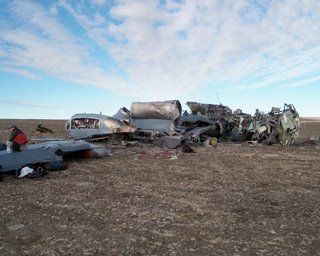 I think about them in the summer months when the sun shines 24 hours per day and the snow is gone. In my mind’s eye, I see the land.
I think about them in the summer months when the sun shines 24 hours per day and the snow is gone. In my mind’s eye, I see the land. 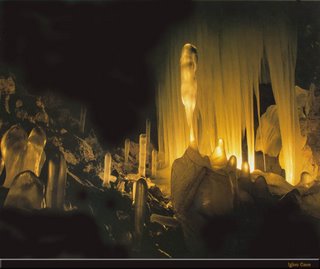
Further south, near the arctic circle, down in the mainland portion of Canada, there are certainly trees, but once you look up into the islands, Baffin Island, Banks Island, Victoria Island, etc. the trees are left behind and you see the more barren landscape. Mountains and grasses. But it is spectacular to look at, and I can only imagine how breathtaking they are to see and visit in person. 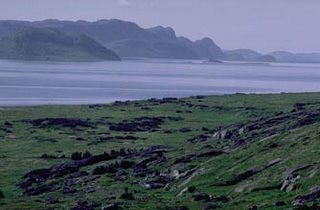
And there is life there. The largest population of Muskoxen in the world is on Banks Island. There are Reindeer, polar bears, artic fox, arctic hare. Hardy birds. I look at pictures of these places on the web. I see what it is like there to some degree. I see the little villages, and the houses, and buildings. I start to get a sense of the places. 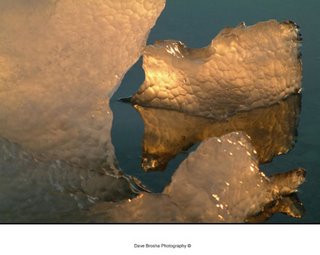 Canada, as a country, has only existed since 1867, and it was settled as a colony of Britain since the 1600's, and then a member country of the British Commonwealth, but there have been people in the arctic for well over 4,000 years.
Canada, as a country, has only existed since 1867, and it was settled as a colony of Britain since the 1600's, and then a member country of the British Commonwealth, but there have been people in the arctic for well over 4,000 years. 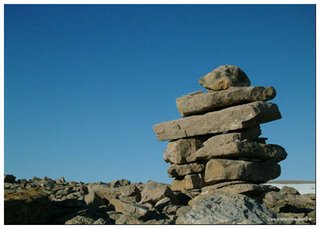 The history of this vast place is long and there are legends from that deep past. And here, as in other places where the people live so connected to the land, there is mysticism and spirituality. My mind seeks those deep, mysterious places hidden in the distant past. I feel a pull to the far north on multiple levels
The history of this vast place is long and there are legends from that deep past. And here, as in other places where the people live so connected to the land, there is mysticism and spirituality. My mind seeks those deep, mysterious places hidden in the distant past. I feel a pull to the far north on multiple levels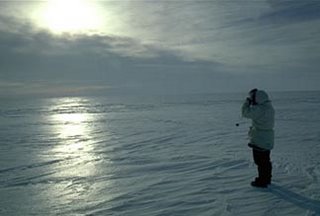 This is different from Antarctica. Antarctica is not a country, it is merely a landmass permanently covered in ice at the bottom of the world, and there are scientists stationed there for conducting experiments, but no one actually lives there. It is not a sovereign nation. But in the far north, that is not the case. This is part of Canada. These modern, but simple settlements have been there for decades,some older ones have been there much, much longer. These people are Canadian citizens. These people actually live here permanently. They hunt and fish, and work in mines, and fly planes, drive boats, teach schoolchildren, sell supplies, and deliver mail, etc. They are civilians and this is their home. It’s different. It's not a science experiment.
This is different from Antarctica. Antarctica is not a country, it is merely a landmass permanently covered in ice at the bottom of the world, and there are scientists stationed there for conducting experiments, but no one actually lives there. It is not a sovereign nation. But in the far north, that is not the case. This is part of Canada. These modern, but simple settlements have been there for decades,some older ones have been there much, much longer. These people are Canadian citizens. These people actually live here permanently. They hunt and fish, and work in mines, and fly planes, drive boats, teach schoolchildren, sell supplies, and deliver mail, etc. They are civilians and this is their home. It’s different. It's not a science experiment.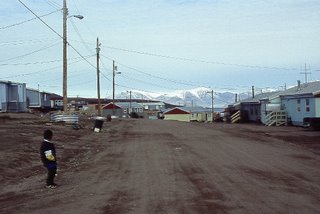 In the summer, when the ice is mostly melted, These tiny little towns are actually connected by flights on a daily basis from Inuvik, which is actually a decently-sized little town with a modest sized but modern airport, etc. It is located on the Mackenzie river delta near the Beaufort Sea. So they are as far north as you can go and yet still be on the mainland. Beyond that, it is a series of islands from there to the north pole. And now, since they opened up the Dempster highway to Inuvik, you can actually drive there, and then take a small plane to get to the other tiny settlements up in the islands even further north. In the winter, there are roads ploughed across the iced-over waterways to actually drive to these little towns. Aklavik, Tuktayuktuk (Tuk), Sachs Harbor, Cambridge Bay, Grise Fiord, Pond Inlet, etc.. And that brings accessibility and lowers the cost of food and other goods in those communities because they can now be supplied by trucks instead of planes.
In the summer, when the ice is mostly melted, These tiny little towns are actually connected by flights on a daily basis from Inuvik, which is actually a decently-sized little town with a modest sized but modern airport, etc. It is located on the Mackenzie river delta near the Beaufort Sea. So they are as far north as you can go and yet still be on the mainland. Beyond that, it is a series of islands from there to the north pole. And now, since they opened up the Dempster highway to Inuvik, you can actually drive there, and then take a small plane to get to the other tiny settlements up in the islands even further north. In the winter, there are roads ploughed across the iced-over waterways to actually drive to these little towns. Aklavik, Tuktayuktuk (Tuk), Sachs Harbor, Cambridge Bay, Grise Fiord, Pond Inlet, etc.. And that brings accessibility and lowers the cost of food and other goods in those communities because they can now be supplied by trucks instead of planes.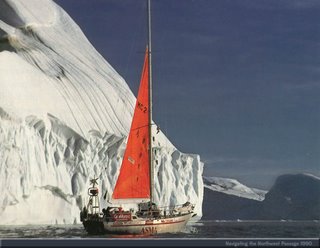
I now live in a middle-class suburb of Dallas, Texas. It is immaculate, spotless, clean, safe, comfortable and warm, and I don't truly want to live anywhere else, at this point. But, I sometimes get frustrated when I look around me and think of all the rules about living here, where the Homeowners Association won’t allow me to have exposed air conditioners on the side of my house, so I must either build a fence to hide them from the street, or else put in bushes to hide them, when they demand I must have at least 3 trees in my front yard, and they must have trunks at least 3 inches in diameter, and they must be one of 5 specific species…I think about the over $9,000 per year I pay in property taxes for this tiny little 100ft wide patch of land that my house is built on. I think about how the neighbors are only about 10 feet away on either side. I think about crime down in the city, and taxes, and electric bills of $350 per month, and the telephone bills, and the gas bills, and insurance bills, and credit card bills, and about the political, and social issues, and I think about work and all the problems and issues there and the politics, and the endless, mindless complaining around me that NEVER stops, and the television with endless commercials screaming at you to spend all your money to buy their stuff, and I hear all this noise and static and confusion, it sometimes gets to be too much. It is easy to get just overwhelmed by the vast noise and complexities of it all.
Then I think about the far north. I think about Ellesmere Island, the northernmost island. I think about how without the snow and ice, in the summer, you have the bare ground. The small rocks and soil and the arctic grasses on the low, ancient hills. Warm enough then that a light jacket is all you need as you explore. There is no confusion. The whole noisy mess of civilization and modern life is gone. No cities, no traffic, no noise, no trees or forests. The incredible stark beauty of the Canadian arctic islands. Mountains and seas that seem out of a fantasy story, or a dream. Huge mountain ranges – all there to be discovered and remembered.
And then there is that secret place at the very top of Ellesmere Island. The place where the trees are gone, and even the mountains are no longer. There are only those low hills, the deep sea at rest, and the sky. That quiet stillness. The hushed, surreal moment as if suspended between reality and dream.
The world is calm. Those gently rolling, ancient hills that have been there for timeless centuries. Millions of years. Billions of years. And they remain unchanged in all that time. 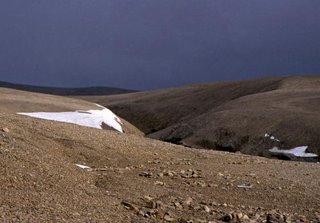
Where I walk, I may be the first to put footsteps there. It’s almost like walking on another planet.
Moving slowly, looking around, feeling the earth directly without the interference of all the things found south in the world. With the shell of life removed and the underlying ancient surface revealed, there, the ancient Earth is naked and exposed. There, I can actually feel the planet, and the closeness of the stars, and the connection of one to the other. And I can finally get clarity as I listen to that profound silence at the top of the world.
~~~
p.s. Since writing a blog is not an income-generating enterprise, people freely visit each other and since all the words, and pictures are open to the public, I usually just go to the internet to find whatever pictures I can to illustrate the points I make in my posts and don't worry too much about where each one comes from. I, myself have a music website full of well over 100 original songs that I have written and recorded, and I am happy to let others enjoy them, and use them as long as they are not making money from them. That is at valserrie.com. In the case of this post though, because they are so beautiful and interesting, I just want to point out that many of the photographs here are by Dave Brosha, a photographer who spent 2 years living in Frobisher Bay, and now lives in Yellowknife, NWT. He has done some excellent work, is a very talented artist, and deserves some notice and attention. Here is one of his several websites: http://www.arctic-photo.com/. I'm sure he would appreciate your visit.


4 Comments:
This entry brought to mind that tremendous Inuit movie Atanarjuat (The Fast Runner). It did a fine job of conveying the life of people in those far northern regions.
Check the movie's web site at http://www.atanarjuat.com/
I'll have to look for that movie and watch it. Thanks, Robert.
I always wonder where you come up with this stuff! (smile)
Just surfed on in.... thanks for your entry!!! I'm a teacher from Vancouver who has moved up to Inuvik three years ago, and has been in the process of debating whether to stay for another year. You're absolutely right -- the north is like no other place in the universe. I indeed feel "closer to the stars," more alive. Every emotion, every small beauty is intensified up here.
Well thanks so much!
There is someone I'd like you to meet. She is a friend of mine from Portland, Oregon. She is also a teacher, and is currently considering taking one of two jobs up in Alaska, but is unsure about moving so far north, and might like to know what to expect.
Would you be willing to share your thoughts and experiences with her?
If so, just send an email ID to vals@valserrie.com, and I'll send it on to her. I think you two might have some things in common. And this is just too much of a coincidence for me to ignore.
Val
Post a Comment
<< Home